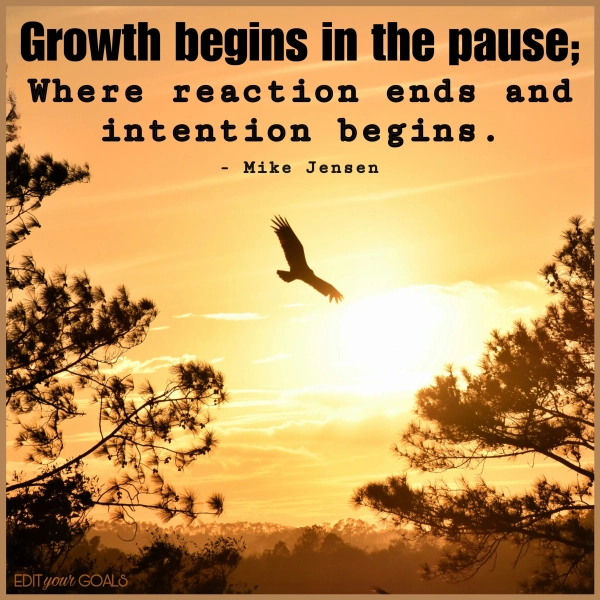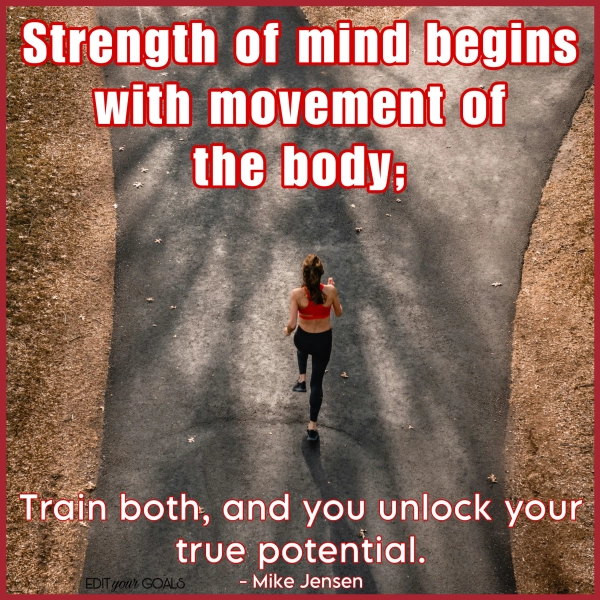Are you becoming how you act?
Imagine a fox or a hawk—they don’t get to choose how they behave. A fox is sneaky because that’s how it survives. A hawk hunts because it was built to. They act on instinct. Humans, however, have the gift of self-awareness. Still, many of us live on autopilot, reacting to life like animals do—quick to anger, jealousy, or deceit—without ever stopping to ask if those reactions serve us.
When we react without thinking, we stay stuck in a primitive state, ruled by emotions and old habits. Anger punishes us by making us feel tense and miserable. Envy weighs us down with dissatisfaction. Deceit isolates us because it erodes trust. These reactions don’t help us—they hurt us. And while we can’t instantly change who we are, we can influence the person we’re becoming.
That power lies in the pause. The moment between stimulus and response is where our growth happens. If someone insults us, we can pause, take a breath, and choose how to respond. Instead of anger, we might choose calm. Instead of envy, we might choose gratitude. Instead of deceit, we might choose honesty. Every pause is a chance to shift from a reactive life to a proactive one.
When we choose our energy intentionally, we begin to live with purpose instead of impulse. That’s how we step out of survival mode and into our potential—by using our influence to shape our identity, one moment at a time.
If this reached you or there was something that truly resonated with you, please like and share in hopes this will maybe reach someone that it could help.
-Coach Mike
EDIT your GOALS
Every
Day
Internal
Thoughts
Guarantees
Our
Absolute
Life
Situations
#growth #pause #reaction #intention #potential
Background Picture by
Sam Bark
Imagine a fox or a hawk—they don’t get to choose how they behave. A fox is sneaky because that’s how it survives. A hawk hunts because it was built to. They act on instinct. Humans, however, have the gift of self-awareness. Still, many of us live on autopilot, reacting to life like animals do—quick to anger, jealousy, or deceit—without ever stopping to ask if those reactions serve us.
When we react without thinking, we stay stuck in a primitive state, ruled by emotions and old habits. Anger punishes us by making us feel tense and miserable. Envy weighs us down with dissatisfaction. Deceit isolates us because it erodes trust. These reactions don’t help us—they hurt us. And while we can’t instantly change who we are, we can influence the person we’re becoming.
That power lies in the pause. The moment between stimulus and response is where our growth happens. If someone insults us, we can pause, take a breath, and choose how to respond. Instead of anger, we might choose calm. Instead of envy, we might choose gratitude. Instead of deceit, we might choose honesty. Every pause is a chance to shift from a reactive life to a proactive one.
When we choose our energy intentionally, we begin to live with purpose instead of impulse. That’s how we step out of survival mode and into our potential—by using our influence to shape our identity, one moment at a time.
If this reached you or there was something that truly resonated with you, please like and share in hopes this will maybe reach someone that it could help.
-Coach Mike
EDIT your GOALS
Every
Day
Internal
Thoughts
Guarantees
Our
Absolute
Life
Situations
#growth #pause #reaction #intention #potential
Background Picture by
Sam Bark
Don’t it take both?
Fitness isn’t just about looking good or staying healthy—it’s a reflection of discipline, presence, and influence. Mental strength and clarity are deeply connected to the condition of the body. While philosophy is often seen as a purely intellectual pursuit, it’s actually a whole-being journey. Socrates, one of history’s greatest thinkers, understood this. He wasn’t just a man of ideas—he was active, physically strong, and committed to training his body as much as his mind. He once said, “No citizen has any right to be an amateur in the matter of physical training,” and believed it was a disgrace “for a man to grow old without ever seeing the beauty and strength of which his body is capable.”
That truth still applies. The body is a vessel through which we experience life, contribute to others, and show up in the world. Neglecting it is like leaving part of our potential untouched. In today’s world, many people—especially the young—are physically unprepared for life’s demands. Conditions like obesity and diabetes are rising not because of lack of knowledge, but lack of discipline and consistency.
Physical fitness is mental fitness. Training the body builds resilience, focus, and a sense of self-respect. It’s not about being perfect—it’s about being present and intentional. When we move our bodies, we influence our energy, our mood, and our ability to face life. Philosophy and fitness are not separate paths—they’re both essential parts of a fulfilled, empowered life.
If this reached you or there was something that truly resonated with you, please like and share in hopes this will maybe reach someone that it could help.
-Coach Mike
EDIT your GOALS
Every
Day
Internal
Thoughts
Guarantees
Our
Absolute
Life
Situations
#strenght #mind #movement #body #potential
Background Picture by
Andrew Heald
Fitness isn’t just about looking good or staying healthy—it’s a reflection of discipline, presence, and influence. Mental strength and clarity are deeply connected to the condition of the body. While philosophy is often seen as a purely intellectual pursuit, it’s actually a whole-being journey. Socrates, one of history’s greatest thinkers, understood this. He wasn’t just a man of ideas—he was active, physically strong, and committed to training his body as much as his mind. He once said, “No citizen has any right to be an amateur in the matter of physical training,” and believed it was a disgrace “for a man to grow old without ever seeing the beauty and strength of which his body is capable.”
That truth still applies. The body is a vessel through which we experience life, contribute to others, and show up in the world. Neglecting it is like leaving part of our potential untouched. In today’s world, many people—especially the young—are physically unprepared for life’s demands. Conditions like obesity and diabetes are rising not because of lack of knowledge, but lack of discipline and consistency.
Physical fitness is mental fitness. Training the body builds resilience, focus, and a sense of self-respect. It’s not about being perfect—it’s about being present and intentional. When we move our bodies, we influence our energy, our mood, and our ability to face life. Philosophy and fitness are not separate paths—they’re both essential parts of a fulfilled, empowered life.
If this reached you or there was something that truly resonated with you, please like and share in hopes this will maybe reach someone that it could help.
-Coach Mike
EDIT your GOALS
Every
Day
Internal
Thoughts
Guarantees
Our
Absolute
Life
Situations
#strenght #mind #movement #body #potential
Background Picture by
Andrew Heald
0 mlx
0payments
0posts
0reactions
0tags
0comments
0subscriptions
0new users
0marketplace

